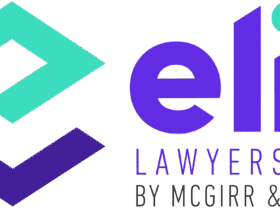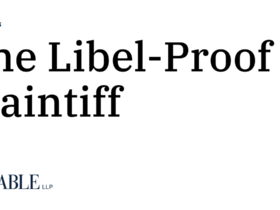Many people believe that our reputation is one of our most significant assets. It holds whether we are talking about a person or a company. Defamation is harming an individual’s reputation through the use of words (usually).
When someone’s reputation is at stake because of false, infamous, disgraceful, or abusive information and its publication, which causes dislike and ignorance, they are subject to defamation.
In this blog, we will take a deep dive to understand more about defamation and slander. But before we look at those and how defamation lawyers Perth can help, let us first understand the basic meaning of slander.
What is slander?
The term slander means false statements made by one party against the other. It is generally communicated verbally to defame the subject of the statements. If we are to put it simply, slander is a legal term used to describe defamation or an attempt to hurt a business or person’s reputation by telling one or more people something that is not true or damaging about them. It can be the basis for a lawsuit but needs to be proven by the subject in the civil court.
The criteria for a false statement to be defamation
For something to be defamation, things should be said regarding anyone who needs to meet specific criteria. All of those have to be proven by the individual filing the lawsuit because they believe that their reputation has been harmed or negatively impacted:
The statement must be prone to hurt an individual’s reputation, something that brings them disrepute and shame in the community.
Defamation needs to be a statement that can be proven false by the individual bringing the lawsuit. If the speech is put forward as an opinion or an exaggerated fact, it is not defamation. It is not defamation if the speech is stated as a fact but is true.
The individual suing for defamation needs to be able to show that the statement was about them. They can meet such requirements even if they are not identified by name as long as they can prove an average person would understand about whom the statement was made.
- Material or massive falsehood
To be defamation, a statement cannot be an insignificant error, such as spelling an individual’s name wrong. It needs to be a significant falsehood, like a person’s actions.
To be defamation, a false statement regarding anyone must be published somehow. It concerns distribution via media. It can also be something as simple as a single individual other than the speaker and subject of the statement hearing it.
If things are already out of hand, consider seeking assistance from civil defamation lawyers.
Are defamation and slander the same?
Slander is a form of defamation. Defamation generally refers to anything communicated in print or verbally that harms another individual’s livelihood and reputation. The statement must be presented as fact instead of opinion to be considered defamation.
Written defamation is referred to as libel. You can find libelous statements in different places such as newspapers, blogs, magazines, comment sections, and many other places.
How can you sue for slander?
You should know that slander is not covered under the First Amendment. It implies that you simply cannot knowingly make any kind of defamatory comments on anyone else. If anyone has defamed you, you can certainly sue them for slander.
You can even pursue your case in the civil court and seek monetary damages. You need to bring proof of defamation. Bringing witnesses, including those whose defamation was made, is a great idea.
Is it challenging to prove slander?
The burden of proof is on the complainant to showcase slander. However, often, proving it can be difficult for various reasons. Complainants ought to prove the slanderer made those statements in malice and knew those claims were false. It can be a challenging venture. This is why seeking assistance from a Defamation litigation lawyer is a must!
Conclusion
Swimming through the legal water is not everyone’s cup of tea. What might often seem easy and uncomplicated ends up leaving you overwhelmed. That is why seeking help from the experts is a must! Get in touch with the expert lawyers today!















